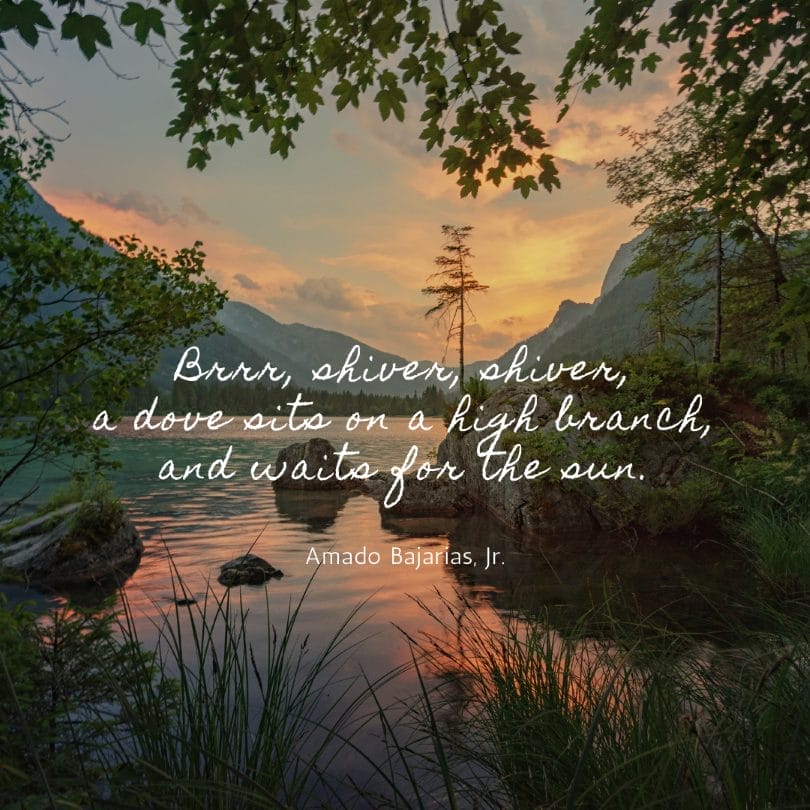by Lu-Ann Fuentes-Bajarias
Birding is a wonderful way to connect with nature, but why stop at watching? Haiku, a traditional Japanese poetry form, offers birders a unique way to convey their love for our feathered friends. In just three lines, haiku can capture the beauty and magic of the avian world, turning sightings into poetic snapshots.
To help illustrate how haikus can “paint” nature, and to invite fellow birders to try their hand at this concise and expressive form, Nature Haikus Tuesday co-founder Amado Bajarias, Jr. (also the author of two poetry books and a bird field guide), consented to share some of his 5-7-5 vignettes.

Does this dove’s state, expressed through the onomatopoeic “Brrr, shiver, shiver,” draw you into the scene? Can you picture the setting?
The massive typhoon
stripped bare our hedges, felled trees.
But the shrike’s still here.
Does this haiku evoke a sense of the shrike’s resilience? Does this prompt you to think about our own vulnerability to the forces of nature?
Munias are singing,
air is alive with birdsong,
time for making nests.
As you read these lines, do you somehow hear the melody of munias? Does the allusion to nest-making give you a sense of seasons changing?
The pond is long gone,
but the wagtails still visit,
they look, then move on.
What emotion does this haiku pull from you? Do you feel both the faithful and fleeting nature of things?
A cold wind ruffles
the feathers of sleeping ducks,
softly, they shiver.
Does this haiku make you marvel over how wild creatures roll with the elements? Does this make you want to capture such subtle moments on the page?
Nights are quieter.
Maybe I’ll hear an owl call.
If we stay quiet.
Does this haiku make you want to embrace the still moments, the better to listen more closely to the sounds of nature?
Your answers to the questions after each of Amado’s haikus may perhaps guide you to the kind of poems you want to pen. Haikus are not about syllables counting, they are about capturing moments in concise poetic breaths.
“A poem,” William Wordsworth said, “is a spontaneous overflow of powerful feelings: it takes its origin from emotion recollected in tranquility.” The discipline of haiku can also free birders to evoke a feeling, an image of a place, a passing time, or a season.
Birders already revel in the wonders of the winged kingdom. Haiku can be an added tool to turn observations into timeless poetry to draw others in. Give it a go! Let your words take flight.
